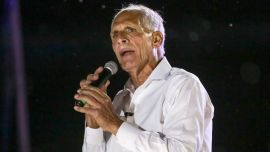If there is something which has been exposed by first the pandemic and then the war in Europe, it is this country’s general lack of infrastructure. And in terms of opportunities, a pipeline to transport the gas from Vaca Muerta is the mother of all battles for Argentina.
Gas sales are probably one of the most profitable of all businesses at present owing to the supply shortfalls and price increases due to the war in Ukraine.
With that international scenario, the government is accelerating the tender for the construction for the Gasoducto Néstor Kirchner, or Néstor Kirchner trunk pipeline, out of Neuquén. Not, of course, without the usual political jabs, since this project was originally contemplated in 2018 during the Mauricio Macri presidency.
Below the Vaca Muerta formation are the world’s second-largest gas reserves but in order to exploit them, they must be taken out of the ground and, above all, transported.
But in one of those typically Argentine curiosities, it is estimated within the sector that the ribbon might well be cut in the second half of 2023 – in other words at the height of the presidential election campaign.
Perhaps the bonanza of the dollar inflow generated by the gas exports to the world and also the recovery of energy self-sufficiency will befall the next government (whatever its party colours).
These days the country is allocating around US$14 billion to ensuring its energy supply. If the trunk pipeline turns out well, that would imply not only saving that sum but also generating hard currency, something less than abundant for a good while.
On the other hand, this also implies that both this winter and next, public funds will be required to guarantee energy supplies. That is why the government has accelerated agreements with both Bolivia and Brazil to guarantee gas supplies permitting the maintenance of household consumption while boosting the level of activity in industry and commerce.
Another factor is that more money will be required this year to face those imports if, for example, the liquefied natural gas (LNG) costing US$8 per British thermal unit last year now costs US$60 due to the war. Only last year 60 very costly boats were needed to import LNG.
The energy strategy tussle has placed the ruling coalition’s infighting in centre stage, enmeshed in arguments over how much to cut energy subsidies and how much to hike electricity and gas billing. The government has just called public hearings between May 10 and 12 with sectors adhering to Vice-President Cristina Fernández de Kirchner pressuring Economy Minister Martín Guzmán, who will be present to face the music and stand up for the coming increases.
They are cornering him from the Energy Department headed by Secretary Darío Martínez (who will be disputing his political future on his Neuquén home turf) and Undersecretary Federico Basualdo, ultra-loyal to CFK whom Guzmán already wanted to throw out almost a year ago but who still hangs on. As well as the Energas trustee Federico Bernal, who rubbishes the segmentation of public service billing. The minister, who travelled this week to an International Monetary Fund (IMF) meeting in the United States, recently warned: “We will govern with those aligned with the economic programme.”
New hikes in the electricity and gas bills are expected to arrive between mid-June and early July. They would be around 20 percent, equal to the increase applied in March and representing a rise of some 300 pesos on average for the gas consumption of a typical family, according to the data of the sector.
These public service bill increases will mean a high political cost for the government which CFK supporters have no wish to share with Guzmán. Even the smallest tweak in billing will be reflected in inflation, which was 6.7 percent in March, the highest level in the last 20 years.
related news
by Alejandra Gallo, Perfil
























Comments